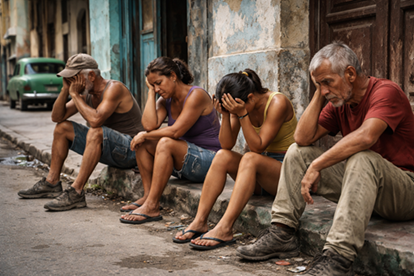
CARICOM and a united Caribbean has always been viewed with scepticism. Seen by some as a mere talking shop and by others as a grand idea which history shows cannot be implemented, regional integration and its bodies have been hard to sell to the people of the region. It is understandable why. Nationalism is a hell of a thing, and with many countries in the region being only just released from imperial rule, it is again understandable why some have scepticism and are wary of joining up with nations which are many times their size in both space, population natural and financial resources.
With that being said, recent events such as the covid-19 pandemic, the contested elections in Guyana and American proposed laws aimed at sanctioning nations which accept Cuban medical teams have once again highlighted the need for a united region and may be the catalyst serious leaders need to ensure greater regional unity.
The Covid pandemic has highlighted once again the inbuilt weaknesses in each member of CARICOM. A shortage of critical workers in the medical sphere is coupled with a glut of unemployed medical sector workers such as doctors, nurses, and medical technicians, this in a region which regularly boasts about UWI. This is coupled with the fact that each individual country in the bloc has their own Covid protocol which leads to a disjointed approach as seen with the attempts to repatriate nationals.
As a result of this shortage of critical care workers we have become dependent on the good graces of neighbours such as Cuba and members of the diaspora who share their skills (the irony in this being that quite a few in the medical diaspora often consists of UWI graduates who became frustrated at the lack of opportunities at home so went abroad). At the same time, we have nationals waiting weeks, and at times months to return home as there is no true regional means of transportation. This issue could be addressed if we had a serious form of integration consisting of freedom of movement and enforced it. Issues relating to cost of travel between countries for these people could be covered by a truly regional airline which caters solely to that sector, this would leave ample market space for airlines to deal with tourism and business travel.
Aside from the medical aspect, a true integration combining freedom of movement and standardisation of labour regulations, countries like Barbados which (their words) are bereft of the hustler mentality (risk to engage in start-ups and small ventures) which is abundant in places like Jamaica can have those citizens move there and build their economies while their graduates in fields of good governance or engineering could for example come to the Jamaica’s and Guyana’s of the region and sure up their shaky state infrastructure.
Guyana and its contested elections again show where CARICOM is weak and why the institution and idea of regional integration needs to be taken seriously. A regional body which was truly strong could and should have dealt with this comedy by now. How is it that the CCJ, the thing which is touted as the region’s answer to the Privy Council, can make a ruling on the matter, Guyana not respect it and CARICOM does nothing? This after CARICOM member states pushed for the matter to go to the CCJ as its verdict would be ‘final’. We see where any hope of normality being restored to that country now rests with the Americans who have levied sanctions on members of the party which refuses to vacate office.
That surely is the biggest slap in the face. CARICOM was founded to ensure that American interference was kept at bay, so to have them weighing in to be the decider while the regional body makes pronouncements is simply embarrassing. Truly this must be the wakeup call for the regional body that integration and therefore by extension adherence to dictates from central bodies must be enforced and respected. This integration must call for teeth to enforce -for example- rulings handed down from the CCJ, a body which is manned, staffed and paid for by all member nations which can, if needs be, sanction and manage a member state which (as is the case with Guyana and was the case with Jamaica) has skirted law or is on the verge of civil conflict.
To leave it up to the OAS and the Americans is to leave the region to the mercies of merciless individuals and groups who have in the distant and recent past sought to use the region for its own ends be they resource extraction or diplomatic cover. More importantly however, in a region where elections and their results are always met with some scepticism, to let the situation in Guyana reach this boiling point could in the end have negative ramifications for countries in the region which are also due to hold elections shortly.
Then we get to the ‘Cut Profits to the Cuban Regime Act’. This proposed law states ”The Cut Profits to the Cuban Regime Act requires the State Department to publish the list of countries that contract the doctors through the Cuban government and to consider that as a factor in their ranking in the State Department’s annual Trafficking in Persons report.” The individuals who have drafted this act have gone on to say “Scott, who led the effort along with Cuban-American Sens. Marco Rubio, R-Fla., and Ted Cruz, R-Texas, said the Cuban government was participating “in the human trafficking of doctors” and that any country that requests medical assistance from Cuba is aiding such efforts.”, and “a form of modern-day human trafficking.”
The proposed law is yet another attempt by the American regime to strangle the Cuban revolution and insult its people whose only crime has been to dare to think and act independently. What makes this law even more egregious is the fact that they seek to bully nations who have been friends of the Cubans into submission and a position of disavowal of the nation which has provided every single member state in this bloc with some form of medical or educational service.
Such actions are insidious on two levels, firstly they contain blatant lies against the Cuban state and about the nature of the medical missions. These lies are akin to the American actions in Pakistan, where they used a polio vaccine as cover in the search for Bin Laden. Upon discovery of the rouse, vaccine workers became open targets as ‘spies’ in nations already suspicious of the practice.
This has the potential to be as damaging, it may very well turn people against what should be a noble cause, combating human slavery and trafficking. Will people take this cause as serious as they should after this law? And, secondly, they are aimed at crippling the recipient nation, an action which happens whether they accept the mission or refuse it. Sanctions if you have them, crippling the economy of these import dependent nations, or have your poorest and most vulnerable section of society die off as you do not have enough to help them, have refused the Cuban medical aid and the likelihood of the Americans filling that void seems to be highly unlikely.
CARICOM must stand up to this proposed law, condemning both it and the entire American government for both trying to destabilise a peaceful regional partner and holding our collective health as hostage. It is time that the individual countries which make up CARICOM and the body itself take a firm stand against these actions, stating unequivocally that we will respond by sanctioning the individuals who clamour for this law, namely the senators from Florida Rick Scott, Marco Rubio, and Ted Cruz of Texas.
Sanctioning these men and them alone would be more than symbolic, these men after all have been at the forefront of destabilising the region for well over a decade. It would also show the hypocrisy when they do eventually cry out and show that we do indeed respect and will stand by our allies and stand against regime change from outside actors. Such actions would also show that the region is committed to peace and integration through the synchronising of their foreign policies (something which has long been called for but neglected for perceived self-interest).
The latter half of last year and the first half of this year have shown us where our weaknesses are, but they have also provided examples of nations and leaders understanding what is at stake and pushing ahead with regional integration at an increased speed. This must be complemented, but more can and should be done if we are to come out unscathed from this new cold war which thrives on dividing nations and regional bodies, and this pandemic which has shown how badly a uniting of national policies is needed.
Barbados, Trinidad & Tobago, and St. Vincent along with their respective leaders seem to have seen what is at play and what is at stake and have made moves to speed up integration while speaking out against the moves to divide us and make the region a hotbed for war. The supporters of regional integration, the people who do not hold office or are Loyal members of the opposition, must use this calamity which is Covid-19 to demand full independence which will come through further integration. We must not only demand freedom of movement, open economies, and the recognition of the CCJ but show the ones who still are reluctant how a truly unified region would have feared with the Covid and the Guyanese elections. We must show them how a truly unified region could stand up to American aggression against our fraternal partner without succumbing to the inevitable backlash and sanctions, we must show them that regional unity is the only way for survival.



